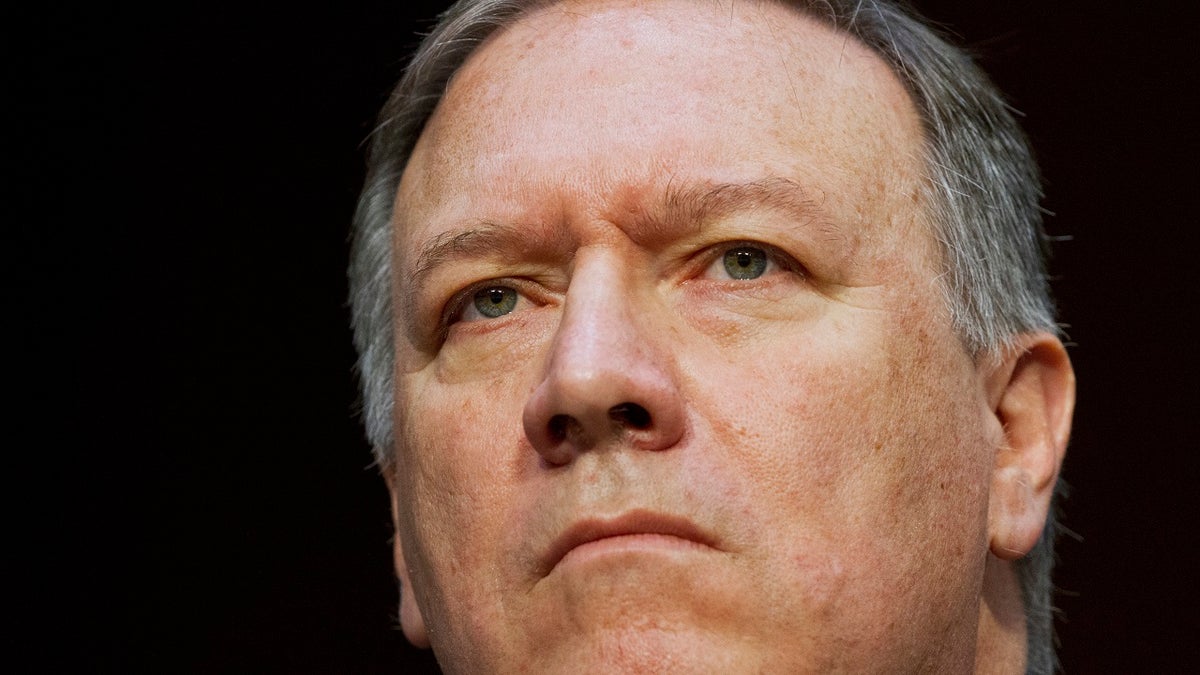
CIA Director Mike Pompeo, seen here in May 2017, said he expects Russia will try to meddle in the U.S. midterm elections (AP Photo/Jacquelyn Martin, File)
Cultivating religious freedom worldwide is a major ingredient for our national security here at home. Mike Pompeo understands this, and will act on it, if confirmed as our next Secretary of State.
It was one year ago when the sense of security of Egypt’s Coptic Christians was brutally interrupted as ISIS terrorists bombed two of their churches on Palm Sunday, killing 47 and injuring scores more. Even this community, already embattled by ongoing instability and expectations of attacks, was shaken by this tragic targeting in their places of worship. We, as Americans, who often take our security for granted should take this opportunity to remember those who cannot afford to do so. As we remember them, as a nation we must recommit ourselves to promoting religious freedom in our foreign policy not only for its own sake, but because it contributes to security, stability, and peace around the world.
Thanks to groundbreaking scholarship released in the past few years, we can now see the clear link between religious freedom and economic growth, and more peace in a society. We understand it is also tied to security—the outcome of which, though perhaps first observed locally, ultimately affects even the national security of the United States. As one scholar noted, “[t]here is not a single nation in the world that both respects religious freedom and poses a security threat to the United States,” and overall, the evidence shows that, “entities engaging in religious persecution—both states and non-states—are on balance more likely to pose a security threat to the U.S.”
Given this realization, one would think national security professionals would be jumping over one another to assess, and then defend and or promote religious freedom overseas. But they haven’t. For various reasons, our nation’s foreign policy elite haven’t embraced religious freedom as an integrated part of our diplomacy and approach to solving security issues. One of those reasons certainly is a lack of familiarity with, and an ignorance of, the very deep, sincere, and important role of religion in the lives of so many around the world. Thankfully, this may soon change.
If Mike Pompeo is confirmed as Secretary of State, he would lead us in strategically engaging on religious freedom around the world, which will ultimately help keep us safer at home.
The most recent United States National Security Strategy, which President Trump rolled out in December 2017, states: [t]he United States also remains committed to supporting and advancing religious freedom—America’s first freedom. Our Founders understood religious freedom not as the state’s creation, but as the gift of God to every person and a fundamental right for our flourishing society.” The document also states it is a “priority action” to “protect religious freedom and religious minorities.”
Implementation will include certain concrete action steps, such as incorporating religious freedom into negotiations on trade and other issues. But it will also include creating a culture in which it is expected that foreign policy and national security professionals will seriously consider religious freedom in their strategy and decision-making. For instance, when the Christians, Yezidis, and others driven away by ISIS are restored to their communities in Northern Iraq (the United States also recently pledged to make sure its aid goes right to groups assisting these communities on the ground), we must understand that not only will we be working toward religious freedom and pluralism in that area, but we will be stabilizing it, and leaving one less spot for the next variation of ISIS adherents to plot attacks against the United States.
The religious freedom challenge posed by violent Islamic theologies being spread around the world is huge. But that same challenge is also a national security challenge. If the propagation of violent Islamic thinking is not dealt with directly and with a long-term strategy, it is likely our national security will always remain in doubt, nor will religious freedom ever be successfully defended around the globe. The two issues are inextricably linked.
Well, how to do this? One way is through a policy of clearly and openly announcing our support for those Muslims and Muslim organizations seeking to promote a theology which is consistent with the peaceful coexistence of those of other faiths. Such a policy honestly and constructively recognizes the religious roots of violent conflicts involving Islam, while making it clear that our religious freedom policy will accept nothing less than tolerance for all to choose how they will worship. Muslims willing to assist this endeavor are out there. But they are often under serious pressure to remain silent, at risk of their own lives. They must know they do not stand alone.
While previous administrations have paid lip service to religious freedom, now is the time to act. The conditions have perhaps never been better aligned than now for a resurgence of this fundamental American value and international human right in our foreign policy and global engagement. We have seen the Senate just confirm an excellent Ambassador-at-Large for International Religious Freedom, Sam Brownback. If Mike Pompeo is confirmed as Secretary of State, he would lead us in strategically engaging on religious freedom around the world, which will ultimately help keep us safer at home.








































